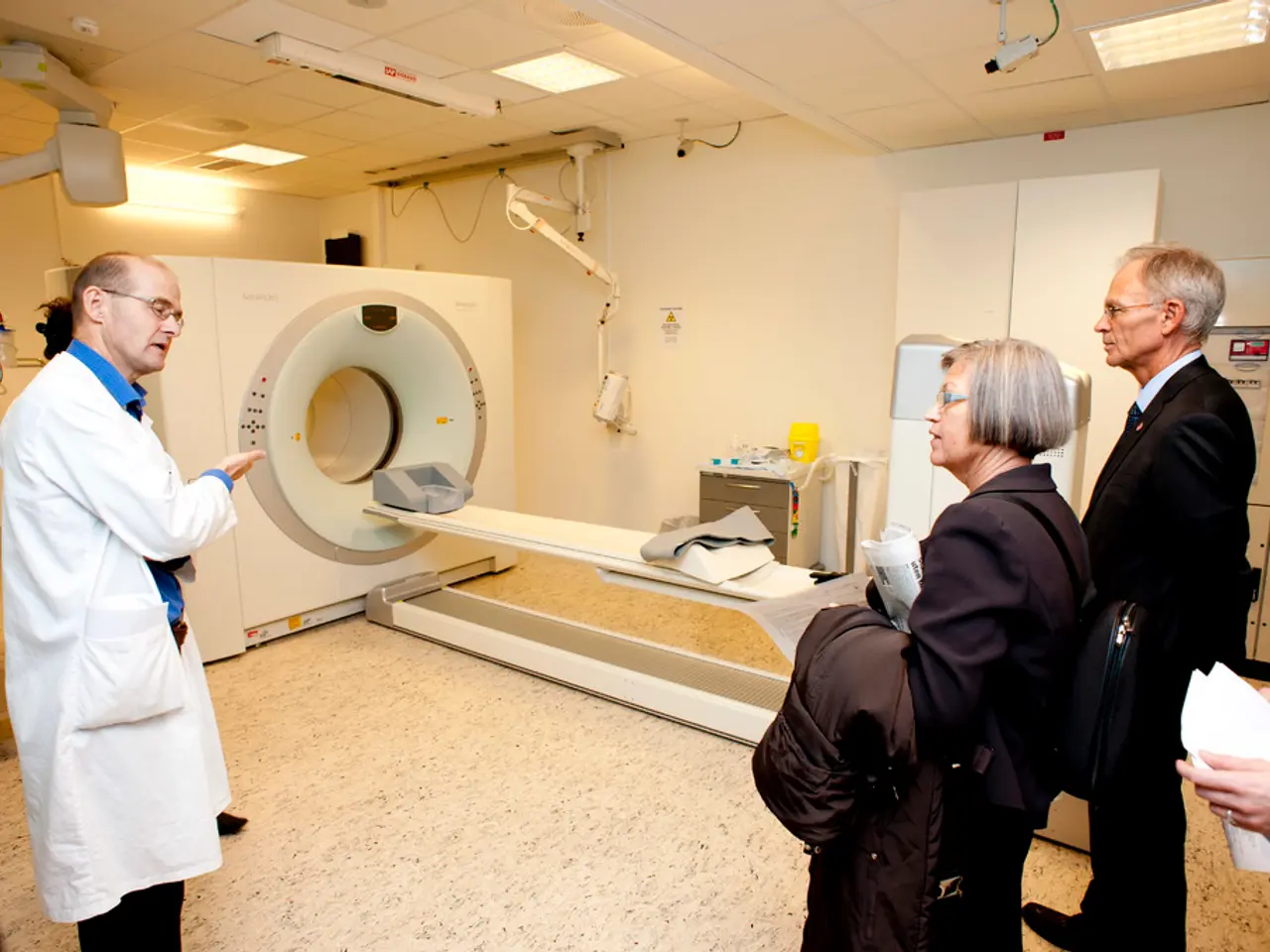Post-Endoscopy Discomfort: Reasons and Duration Explanation
Endoscopies, while generally safe, can occasionally lead to complications, one of which is severe chest pain. Although rare, this pain should not be ignored.
Potential Causes
Several factors can cause chest discomfort after an endoscopy. Here are some key potential causes:
- Esophageal perforation or injury: This serious complication requires urgent evaluation, often with imaging such as a CT scan with oral contrast, and may necessitate surgical intervention.
- Esophageal spasm: This condition can cause severe, squeezing chest pain that mimics heart-related pain, often accompanied by difficulty swallowing. It may be triggered or exacerbated by irritation from the endoscopy procedure.
- Gas-related chest pain: Gas buildup in the digestive tract after the procedure can cause chest discomfort or pain due to bloating and distension, especially if air is swallowed during endoscopy or if digestion slows.
- Acid reflux or esophagitis: The procedure can sometimes worsen acid reflux or cause irritation of the esophagus, leading to chest pain resembling heartburn.
- Eosinophilic esophagitis or other inflammatory conditions: These conditions can present with chest pain and may be diagnosed or worsened after endoscopy.
Treatments
Treatments vary based on the cause. For gas-related pain, treatments include simethicone (anti-gas medication), dietary modifications, and avoiding air swallowing. For esophageal spasms, smooth muscle relaxants, calcium channel blockers, or nitrates may be prescribed. For acid reflux or esophagitis, proton pump inhibitors (PPIs) or antacid medications are commonly used. If perforation is suspected, immediate medical attention with imaging, possible hospitalization, antibiotics, and sometimes surgery is necessary.
When to Seek Medical Help
If you experience pain in the chest that does not get better, abdominal pain that worsens, difficulty breathing, persistent problems swallowing, throat pain, vomiting (particularly if containing blood), bloody or tarry stools, fever, you should seek immediate medical help.
Post-Endoscopy Care
After an endoscopy, people often feel groggy and should rest and avoid strenuous activities for the rest of the day. They should also stay hydrated and choose foods that are easy to swallow until their throat no longer hurts. Common side effects of an endoscopy include a sore throat, temporary bloating or nausea, difficulty swallowing, and grogginess due to sedation. Slight bleeding at the site of a biopsy or growth removal during an endoscopy is possible. Biopsies or growth removal during an endoscopy can cause pain or soreness at the site.
It is crucial to seek medical advice if a person develops chest pain after an endoscopy or if side effects of the procedure do not subside after a few days. Prompt evaluation with medical professionals is critical to determine the exact cause and appropriate management.
- AQ tests can potentially help predict other digestive procedures nonsurgical complications, including chest pain.
- Migraines are not directly related to endoscopies, but they can still affect individuals, causing discomfort separately.
- Lung-related issues, such as asthma or lung cancer, are not usually connected to endoscopies, but proper respiratory-conditions care is essential for overall health-and-wellness.
- Psoriasis is a skin-condition that may require different therapies-and-treatments post-endoscopy to manage any potential flare-ups.
- Science continually researches the impact of chronic-diseases like diabetes or autoimmune-disorders on the healing process after procedurures like endoscopies.
- Sleep disturbances may occur as a side effect of sedation used during the endoscopy, impacting both work-place wellness and personal life.
- Employers can implement workplace-wellness programs to encourage better nutrition and fitness-and-exercise, reducing the risk of obesity and related illnesses like weight-management issues.
- Eye-health and hearing can sometimes be affected by certain medications or underlying medical-conditions, which may surface during endoscopy evaluations.
- Skin-care is crucial for maintaining good health, especially after procedures like endoscopies, to prevent infections or skin-conditions.
- Endoscopies may not have a direct impact on sexual-health, but cardiovascular-health is essential for maintaining a healthy intimate life.
- Medicare coverage may vary for endoscopies depending on the patient's condition, age, and specific facts related to the procedure.
- CBD oils, while not directly linked to endoscopies, are sometimes used as an alternative therapy to manage pain and anxiety related to various medical-conditions.
- Neurological-disorders like Parkinson's disease or migraines can have symptoms that mimic chest pain after endoscopies, requiring further investigation.
- Aging presents unique challenges for digestive-health, especially in relation to conditions like colon cancer or sexually transmitted infections.
- Womens-health encompasses a wide range of issues, from breast cancer to gynecological issues, many of which require specialized endoscopies or other procedures.
- Parenting often requires balancing medical appointments, work, and caring for the family, leading to stress and potential mental-health issues.
- Endoscopies may not impact psychological conditions like depression directly, but proper mental-health care is essential for overall well-being.
- Mens-health covers a range of issues, from prostate cancer to reproductive health concerns, some of which may require endoscopic treatments.
- Aging parents may need assistance with managing their medications, diet, and other aspects of health-and-wellness, including eye-health, hearing, and skin-care.




